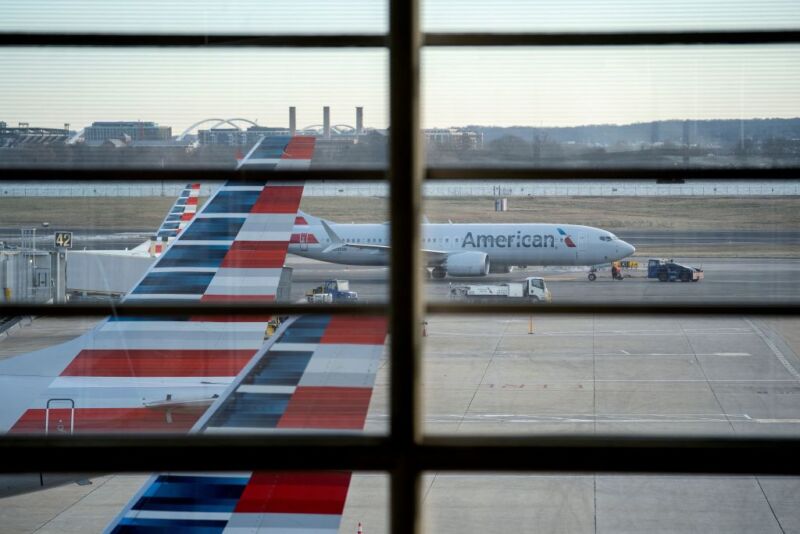
Update, January 18, 3:50 pm EST: Verizon and AT&T have said they will postpone the launch of their advanced 5G services near certain airports in response to airlines’ threats to cancel flights. From the Financial Times:
AT&T said it had voluntarily agreed to “temporarily defer turning on” a limited number of 5G-enabled towers around “certain airport runways” as it provides more information to airlines and regulators, but added it was launching its advanced 5G services elsewhere as planned.
Verizon also said it would launch its 5G “ultra wideband” network on Wednesday, but had voluntarily decided to limit it “around airports,” without specifying the number of airports.
Original story: The imminent rollout of high-speed 5G telecoms services threatens to ground flights across the US, America’s largest airlines warned on Monday, as they urged government agencies to intervene to avoid “chaos” for passengers and “incalculable” disruptions to supply chains.
“The harm that will result from deployment on January 19 is substantially worse than we originally anticipated,” warned Airlines for America, an industry lobby group, pointing to the potential for 5G services to interfere with the sensitive equipment that aircraft use to take off and land.
The letter, seen by the Financial Times and first reported by Reuters, was signed by the largest US carriers as well as the air freight arms of two of the biggest logistics groups, UPS and FedEx.
The companies called on Joe Biden’s administration to block the rollout of 5G to towers located within two miles of airport runways that the Federal Aviation Authority has identified as being prone to disruption.
“Unless our major hubs are cleared to fly, the vast majority of the traveling and shipping public will essentially be grounded,” the lobby group wrote in its letter to officials including Brian Deese, the National Economic Council director, and Pete Buttigieg, the transportation secretary.
United Airlines said Washington’s 5G rollout plan would have “a devastating impact,” affecting an estimated 1.25 million of its passengers and 15,000 flights a year while disrupting an already fragile supply chain.
“Governments in other countries have successfully designed policies to ensure the safe deployment of 5G technology and we’re simply asking the US government to do the same,” United said in a statement. “We implore the Biden administration to act quickly and apply the same common sense solutions here that have clearly worked so well around the world.”
5G services have been introduced in other countries without sparking the same concern among airlines. According to the FAA, the services planned in the US differ in several ways, including operating at frequencies closer to those used by aircraft equipment, and at higher power levels.
The White House and the transportation department did not immediately respond to a request for comment. An Airlines for America spokesperson declined to comment.
AT&T and Verizon had planned to launch their 5G services on December 5 but delayed the launch a month to allow time for safety reviews. The two telecoms groups initially rejected a subsequent request from regulators to delay their rollout by another two weeks to January 19, but then agreed to do so.
The planned 5G services use frequencies in the C-band radio spectrum, which can be close to those used by altimeters that measure an aircraft’s height from the ground and feed information into navigation instruments and other onboard safety systems.
The FAA has planned buffer zones around 50 airports that have wireless transmitters in proximity to runways, including in New York, Los Angeles, and Chicago. However, airlines maintain that this will not be enough to prevent disruptions.
The 11 executives who signed Monday’s letter said that the FAA’s latest statement on the issue had downplayed the threat of disruption and that continuing flight restrictions at those 50 airports could leave “huge swaths of the operating fleet” grounded indefinitely.
On Sunday, the FAA cleared aircraft using two models of radio altimeters to perform low-visibility landings at the 88 airports it expected to be most affected by 5G C-band interference.
The FAA’s clearance of those devices could still leave 1,100 flights and 100,000 passengers affected by cancellations or delays on a typical day, Airlines for America warned, saying that it had established that flight restrictions would not be limited to poor weather operations.
The airlines’ warning of “incalculable” effects on passengers, staff, and cargo operations came as the industry has continued to struggle to rebuild its schedules to pre-COVID levels while dealing with seasonal disruptions from winter storms.
On Monday, FlightAware reported that more than 2,500 US flights had suffered delays, with more than 1,600 cancellations.
© 2022 The Financial Times Ltd. All rights reserved Not to be redistributed, copied, or modified in any way.
https://arstechnica.com/?p=1826518

